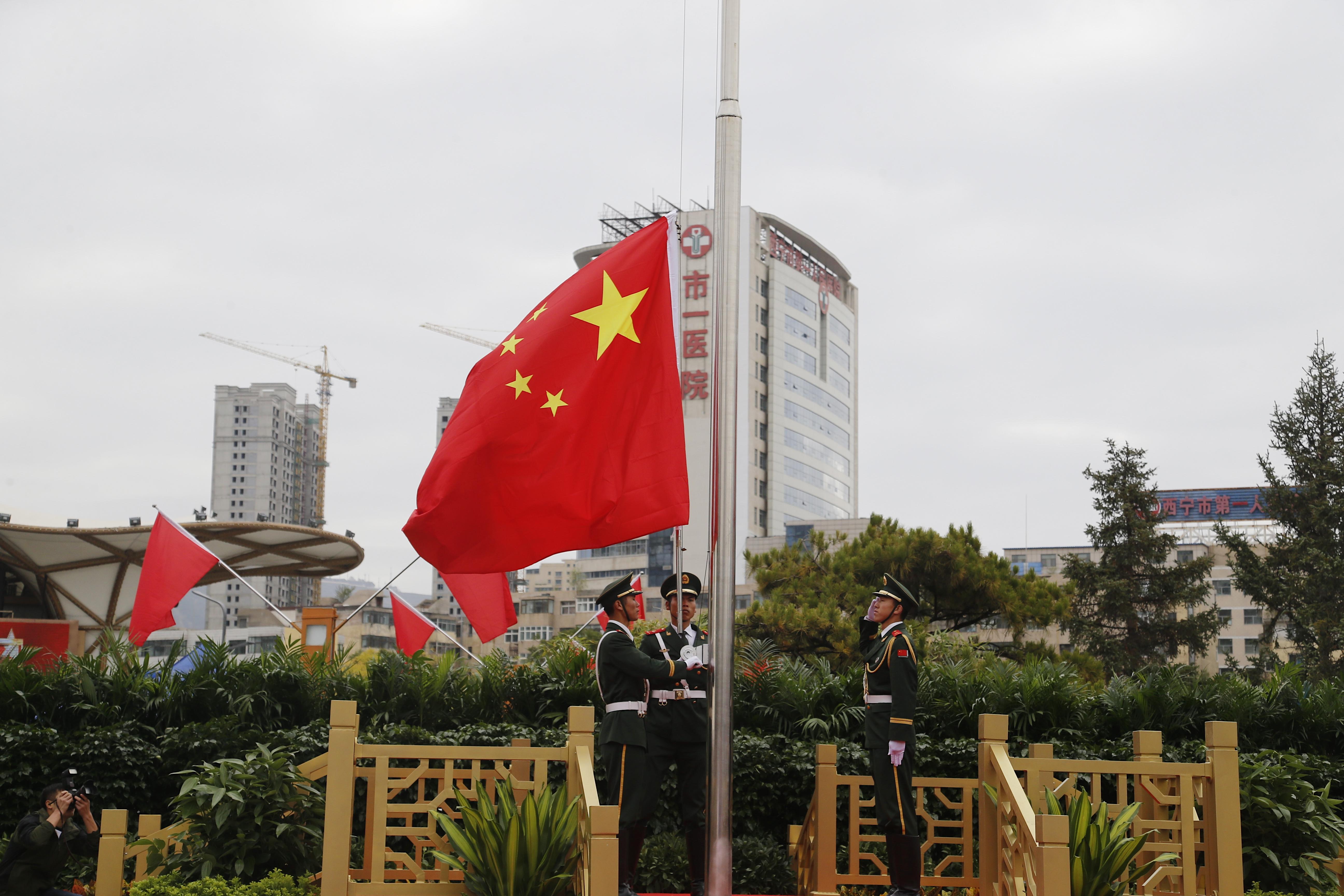US warns China against attacking Taiwan but does not say if it will intervene
The US advises Taiwan to increase its military budget

Your support helps us to tell the story
From reproductive rights to climate change to Big Tech, The Independent is on the ground when the story is developing. Whether it's investigating the financials of Elon Musk's pro-Trump PAC or producing our latest documentary, 'The A Word', which shines a light on the American women fighting for reproductive rights, we know how important it is to parse out the facts from the messaging.
At such a critical moment in US history, we need reporters on the ground. Your donation allows us to keep sending journalists to speak to both sides of the story.
The Independent is trusted by Americans across the entire political spectrum. And unlike many other quality news outlets, we choose not to lock Americans out of our reporting and analysis with paywalls. We believe quality journalism should be available to everyone, paid for by those who can afford it.
Your support makes all the difference.The US national security adviser warned China on Wednesday against any attempt to take Taiwan by force, saying amphibious landings were notoriously difficult and there was a lot of ambiguity about how the United States would respond.
Robert O'Brien told an event at the University of Nevada in Las Vegas that China was engaged in a massive naval buildup probably not seen since Germany's attempt to compete with Britain's Royal Navy prior to the First World War.
"Part of that is to give them the ability to push us back out of the Western Pacific, and allow them to engage in an amphibious landing in Taiwan," he said.
"The problem with that is that amphibious landings are notoriously difficult," Mr O'Brien added, pointing to the 100-mile (160-km) distance between China and Taiwan and the paucity of landing beaches on the island.
"It's not an easy task, and there's also a lot of ambiguity about what the United States would do in response to an attack by China on Taiwan," he added, when asked what US options would be if China moved to try to absorb Taiwan.
Mr O'Brien was referring to a long-standing US policy of "strategic ambiguity" on the question of whether it would intervene to protect Taiwan, which China considers its province and has vowed to bring under its control, by force if necessary.
The United States is required by law to provide Taiwan with the means to defend itself, but it has not made clear whether it would intervene militarily in the event of a Chinese attack, something that would likely lead to a much broader conflict with Beijing.
Mr O'Brien's comments come at a time when China has significantly stepped up military activity near Taiwan and when US-China relations have plunged to the lowest point in decades in the run-up to President Donald Trump's 3 November re-election bid.
Mr O'Brien repeated US calls for Taiwan to spend more on its own defence and to carry out military reforms to make clear to China the risks of attempting to invade.
"You can't just spend 1 per cent of your GDP, which the Taiwanese have been doing – 1.2 per cent – on defence, and hope to deter a China that's been engaged in the most massive military build up in 70 years," he said.
Taiwan needed to "turn themselves into a porcupine" militarily, he said, adding: "Lions generally don't like to eat porcupines."
On Tuesday, the senior US defence official for East Asia called Taiwan's plan to boost defence spending by $1.4bn (£1.08bn) next year insufficient.
He said it needed to invest in capabilities including more coastal defense cruise missiles, naval mines, fast-attack craft, mobile artillery and advanced surveillance assets.
Taiwan's defence ministry, in a response provided to Reuters, said they will "strive for an adequate budget" in accordance with their needs to build a solid national defence force.
Reuters





Join our commenting forum
Join thought-provoking conversations, follow other Independent readers and see their replies
Comments